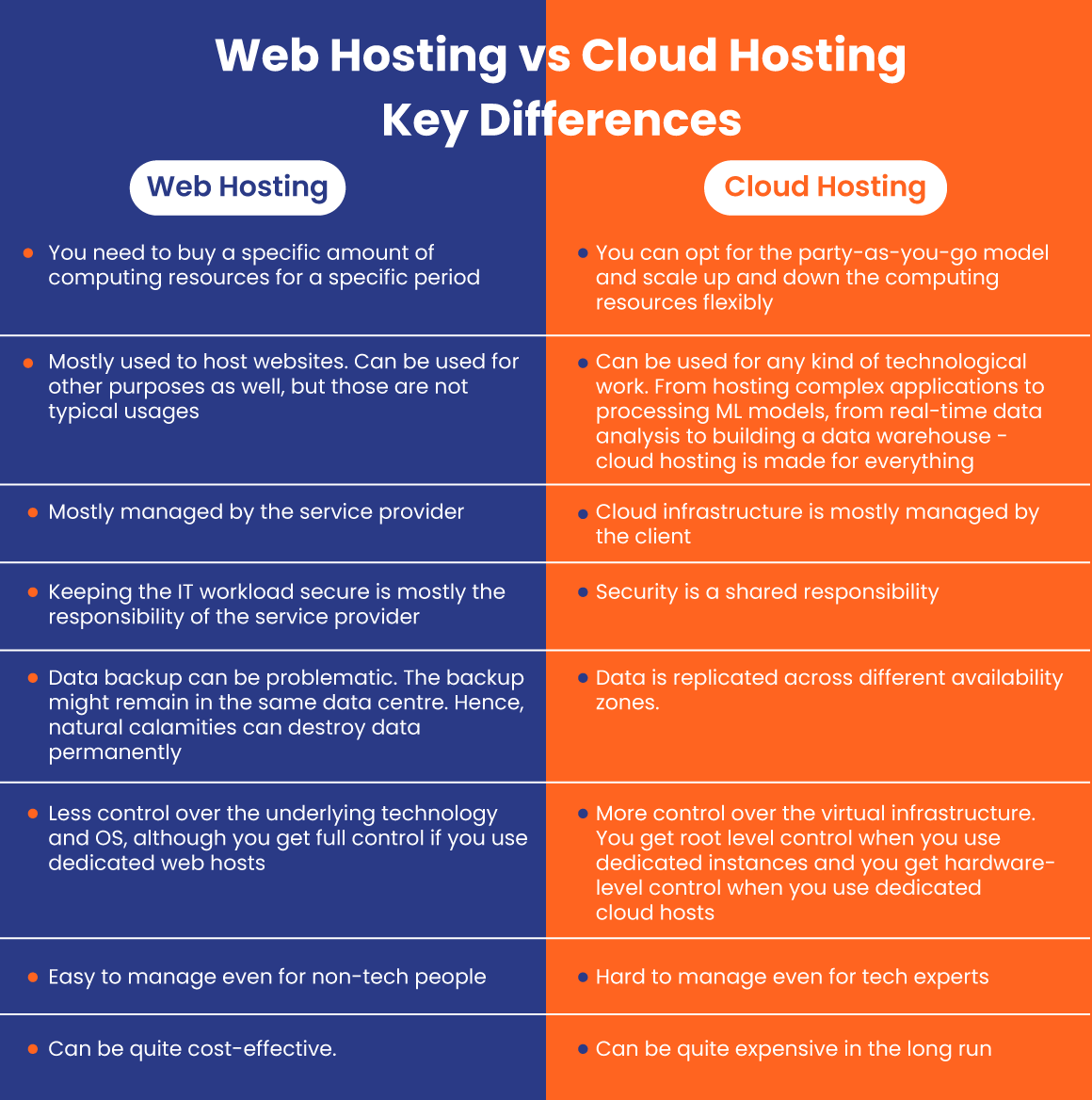Web Hosting vs Cloud Hosting: What’s the Difference?
When it comes to hosting your website, the choice between web hosting and cloud hosting can be a tough decision. Both options have their pros and cons, depending on the needs of your website. Let’s dive into the differences between these two hosting options to help you make an informed decision.
Web Hosting
Web hosting is the traditional way of hosting a website. With web hosting, your website is stored on a single physical server along with other websites. This server is maintained by a hosting company, which ensures that your website is accessible to visitors around the clock.
- Shared Resources: With web hosting, resources such as CPU, RAM, and bandwidth are shared among multiple websites on the same server. This can lead to slower performance during peak times.
- Scalability: Web hosting plans typically have limited scalability options, making it difficult to handle sudden spikes in traffic.
- Cost-Effective: Web hosting is often more affordable than cloud hosting, making it a popular choice for small businesses and personal websites.
Cloud Hosting
Cloud hosting, on the other hand, offers a more flexible and scalable solution for hosting websites. With cloud hosting, your website is hosted on a virtual server that pulls resources from a vast network of physical servers.
- Dynamic Scaling: Cloud hosting allows you to easily scale your resources up or down to accommodate changes in traffic. This means you only pay for what you use, making it a cost-effective option for growing websites.
- High Availability: Cloud hosting offers high availability and uptime, thanks to its redundant infrastructure. If one server fails, your website will be automatically transferred to another server to ensure uninterrupted service.
- Security: Cloud hosting providers often have robust security measures in place to protect your website from cyber threats and attacks.
So, which hosting option is right for you? It ultimately depends on the specific needs of your website. If you have a small website with limited traffic and budget constraints, web hosting may be the better choice. However, if you expect your website to grow rapidly or experience unpredictable spikes in traffic, cloud hosting offers the scalability and flexibility you need.
Whichever option you choose, be sure to research and compare different hosting providers to find the best fit for your website. Consider factors such as performance, reliability, support, and cost before making your decision. With the right hosting solution in place, you can ensure that your website runs smoothly and efficiently, attracting visitors and achieving your online goals.
